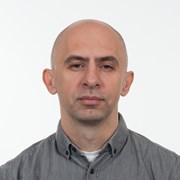In order to feed the population in a sustainable way and to reduce the amount of green house gasses, the technology must be these eyes, this brain and these hands that contributes to reduce of loss and waste, from fish to wheat. This is the goal to the scientists and researchers that are at the head of iProcess: "Greater value – less loss and waste."
iProcess is an interdisciplinary research project that aims to conduct research for an “Innovative and Flexible Food Processing Technology in Norway”. Large vendors don't develop technology for a small-scale production with large variations within the biological raw material. 17% of the total amount of greenhouse gases emitted in the EU, come from the food processing sector. Globally, 1.3 billion tons of food are wasted every year. In the Norwegian food processing industry alone, at least 320,000 tons of food go to waste annually.
In today´s food industry, too much raw material is lost in the processing stages due to a technology that fails to adapt to the variations of each individual fish, chicken, meat carcass, fruit/vegetable, or dairy product that is being processed. The food industry in Norway is characterized with smaller production volumes than global food industry and the equipment that can be bought from global vendors isn't adjusted to the Norwegian production model. It's a great need for module based technological solutions that can be adjusted to Norwegian food industry that deals with small production volumes and raw materials with high biological variation.
The researchers that work with the iProcess project intends to develop highly innovative food processing technology concepts by conducting research in areas such as 3D machine vision, spectroscopic sensors, X-ray imaging, machine learning, Big Data, and flexible robot based automation. These concepts are based on machine and robotic ‘eyes’, ‘brain’ and ‘hands’, capable of performing some of the complex food processing operations, most of which are currently performed manually. This will create a more flexible, profitable and sustainable food industry.


